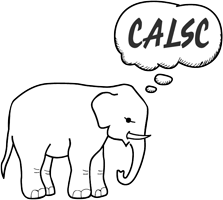Facts and Tips to help improve Memory
Facts
- Memory is a hidden skill, it can’t be improved by just watching people with good memory and good classroom teaching does not always improve underlying memory strategies.
- There are three stages to memory – acquisition, processing & retrieval. Problems can occur in any or
all of these stages. - You must understand memory before you can improve it. There are many types of memory :
a. short-term memory
b. working memory
c. long-term memory
d. recall
e. visual memory
f. auditory memory
g. sequential memory
h. spatial memory
i. prospective memory - You can be good at one type of memory and not another.
- Short-term memory is a separate skill from longterm memory.
- Short-term memory is of a limited size and duration.
- You have to improve short-term memory before you can improve working memory.
- Pure repetition does not help some people to transfer information into long-term memory.
- You can learn something but not recall it at will unless it is in your automatic long-term memory.
- Memory strategies can be taught to those who don’t use them automatically.
- There is a difference between facilitating and improving memory. Facilitating memory does not usually improve underlying strategies.
- The speed information is presented makes a difference to how much is remembered.
- The modality in which information is presented makes a difference to how much is remembered.
- The amount of information presented makes a difference to how much is remembered.
- More complex information and language is more difficult to remember.
Tips
- Aim for transfer and generalisation from the start – you need to believe it is possible to help someone improve their memory.
- Explain why it will be useful to improve memory skills (develop motivation).
- Don’t make memory improvement just a game - games don’t transfer to real life.
- Explicitly model a range of memory strategies.
- Mediate memory strategies - don’t teach them. Allow the person to work out what works for them - don’t tell them.
- Remember the importance of discussing memory strategies - just doing exercises doesn’t improve memory in the real world.
- Explain the language of memory to help a person think about improving his / her skills.
- Mediate strategies developmentally.
- When teaching memory skills don’t use difficult concepts and vocabulary, allow concentration to be on the strategies not the content.
- Discuss with a person what strategies work for them, then model some other strategies for
them to try. - Remember the +1 principle and introduce new expectations slowly. Don’t overload a person’s
memory or they can forget everything. - Find their “magic number” (memory span) and practise using it in different situations.
- Classification and organisation of information helps memory (input, processing and output).
- Practise strategies in real life situations.
- Review regularly to develop automatic recall (at increasingly spaced intervals).
- Remember to remember – remind a person to use a strategy that has been learned.
- Aim for a person to understand their own memory as that helps them use it better.
- Don’t expect instant changes.
- Reduce anxiety – stress is bad for memory!
- Praise improvements (in yourself or pupils).

